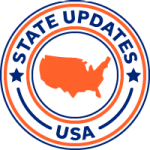
Policy Matters Brief June 29, 2020
Our updated state-by-state rules for Physician Dispensing is now available, here.
Kentucky workers’ comp medical treatment guidelines adopted but COVID-19 delays implementation
The implementation of Kentucky’s recently approved regulation adopting workers’ compensation medical treatment guidelines has been delayed from September 1, 2020 to January 1, 2021 due to COVID-19 and its impact to medical practices. Through an administrative order, Kentucky Department of Workers’ Claims (DWC) Commissioner Robert Swisher issued a delay to give the DWC more time to offer training and outreach to medical providers who may be experiencing a backlog of patients. The governor authorized agencies to take such action, if necessary, during their COVID-19 state of emergency.
Originally proposed by the DWC last year, the regulation had to go through the state’s normal rule-making process, which included approval by certain legislative committees. The regulation adopts the ODG treatment guidelines published by MCG Health. It details the application of the guidelines, as well as the preauthorization and related utilization review and dispute processes, including required timeframes.
Illinois adds COVID-19 presumption law with rebuttal provisions
The Illinois legislature passed and the Governor recently signed a bill that created a rebuttable COVID-19 presumption for police officers, firefighters, EMTs and health care providers. The presumption covers those employees who work for essential businesses, as well as any workers who directly interact with the public or work with more than 15 other employees.
The rebuttal provisions allow employers to contest the presumption by attempting to reduce the spread of the virus by several methodologies throughout the workplace. An employer can also dispute the claim by showing the employee worked from home for 14 or more consecutive days or was exposed to the virus by a source different than that of their employment. The presumption, in HB 2455, was enacted on June 5, 2020 and applies to COVID-19 diagnoses that occur between March 9, 2020 and December 31, 2020.
Division of Federal Employees’ Compensation adopts COVID-19 presumption for federal workers
The Division of Federal Employees’ Compensation (DFEC) released a notice about adoption of a limited presumption for federal workers that are in “high-risk” jobs should they develop an illness related to a COVID-19 infection. According to DFEC, these workers have close interactions with the public and will fall into the defined category of high-risk employment. They include federal law officers, first responders and front-line medical personnel.
For these defined workers, the federal Office of Workers’ Compensation Programs will accept that the exposure to COVID-19 was proximately caused by the nature of the employment. Workers who are not defined as high-risk will be required to provide factual statements and submit evidence to establish the exposure. More information on the DFEC handling of COVID-19 related claims and the DFEC notice can be found here.
Michigan auto no-fault reform policy limits to take effect soon
Last year’s auto no-fault reform legislation in Michigan included new limited coverage levels for personal injury protection (PIP) that are scheduled to go into effect for policies issued or renewed after July 1, 2020. Prior law only included unlimited PIP medical coverage. The new law includes several different coverage levels in addition to the ability to opt-out under certain limited conditions. The state’s Department of Insurance and Financial Services (DIFS) has also recently been facilitating virtual town halls providing an overview of the new law and coverage options.
The reform law, as a whole, has a phased-in implementation timeline with some provisions, such as new medical fee schedules, not taking effect until after July 1, 2021. DIFS has also been involved in rule-making to adopt utilization review regulations for this year, which was a requirement of the agency under the reform legislation.
Louisiana adopts COVID-19 medical treatment guidance
The Louisiana Workforce Commission Office of Workers’ Compensation Administration (OWCA) recently adopted provisions amending the existing Medical Treatment Guidelines to provide clarification on treatment, reimbursement and coding related to COVID-19. In the published rule, OWCA outlines specific CPT coding for medical treatment and testing related to COVID-19, as well as specific coding modifiers. The emergency rule, effective May 22, 2020, will be in effect for a period of 120 days unless re-adopted. More information about the specific codes and reimbursement values can be found starting on page 782 of the Louisiana State Register, which is the 14th page in this document.
ANNUAL WORKERS’ COMP REGULATOR CONVENTIONS GO VIRTUAL
SAWCA Conference
The Southern Association of Workers’ Compensation Administrators (SAWCA) recently announced that its 72nd Annual Convention will be held virtually. The SAWCA 2020 Virtual Convention will consist of four sessions over two days providing six hours of content, including discussions by state regulators and industry professionals. Content will include a regulators roundtable, an employer panel, a carrier/insurance panel and the traditional closing panel moderated by Bob Wilson of WorkersCompensation.com. Optum’s Kevin Tribout, executive director of our Public Policy and Regulatory Affairs team, will be on that closing panel.
During each session, the roundtable or panel participants will be available for questions via a live chat room. More information is available on the SAWCA website. SAWCA’s membership includes 21 workers’ compensation agencies and several associate members from the industry, including Optum.
IAIABC Conference
Later in the year, the International Association of Industrial Accident Boards and Commissions (IAIABC) 106th Convention will also be a virtual-only event. The IAIABC recently announced that the programming for this event will be offered over a four-week period in September and will include a combination of presentations, discussion forums and committee meetings as usual. Much of the programming will be available on-demand for later viewing. A more complete schedule, along with registration, will be available around July 10 on the IAIABC website. IAIABC’s membership includes workers’ compensation agencies (in the U.S. and internationally) and many other associate or EDI members from the industry, including Optum.




